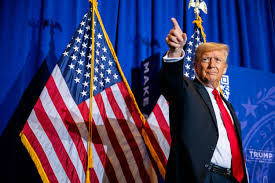War, along with all its horrors, brings change, much of it unforeseen, and Putin's war in Ukraine has already shown it is going to be no exception, assuming the world escapes a nuclear finale, which we must assume.
Away from the battleground, negotiations between Ukraine and Russia and efforts at mediation are continuous, with contradictory reports on their progress; these may or may not produce an outcome short term. Death and destruction are not stopping meanwhile, but a clear victory for Russia, with imposed terms, is unlikely now. The speculations here consider the international aftermath.
In the Europe heartland, the Versailles Declaration March 10/11 by twenty seven heads of state and government that the EU intends to look to its collective defence, counter cyber warfare and become autonomous in food and energy, recalls Churchill and Roosevelt announcing the Atlantic Charter, which set out the Anglo-American vision for the world after WWII.
This is Europe eighty years on, warning "Russia and its accomplice Belarus" that their war marks "a tectonic shift in European history" and condemning it unmistakably as one. The affirmation that "Ukraine belongs to our European family" has the ring of a distant knell for Mr Putin. He has brought forward the unity he started the war to break up.
Across the wider world, the greatest alliance the world has seen, NATO, has been spurred to renew its purpose and energy, restoring the leadership of the US, Putin's implacable adversary, that had been compromised under President Trump. Essentially isolated, under harsh sanctions, Russia is reduced to a declining secondary power.
The Cold War may resume temporarily and conceal this, but Russia's descent to pariah state, weakened economically and exposed militarily, is possible: the Sick Man of Europe in the 21st Century as the Ottoman Empire was Sick Man in the 19th. As an audition for the role, Putin led his country into an old-fashioned war he could not win. China, the modernising, coming world power, with no vital interests in Europe, can hardly be anxious to take part in the Kremlin's blunder.
Nor is it unduly optimistic to see liberal democracy making a comeback after a period in the doldrums. Authoritarianism is terribly revealed not only as brutal and barren, but a potential death threat to all. The millions of Ukrainians fleeing the fighting are spreading their idea of freedom to lands where millions more work for the same end. Here is what Putin's war is finally about: the ongoing struggle between two cultures, one inexorably advancing through weight of democratic numbers, the other ever more widely viewed as left behind by history.
If Russia is so sidelined, America may
see a future in courting China, the only remaining equal, to impose a steadying Pax Sino-Americana. It would involve rejecting Trumpism, maybe muted trumpeting in future of the delights of democracy, and a balanced deal in the South China Sea, but necessity has led to diplomacy managing greater demands. What, after all, does Trump's national machismo have to offer when his alter ego Putin failed at that game, besides inviting the same terrifying possibility of nuclear extinction?
There was a time when speculation could see Russia and America getting together by the 21st century to resist the growing might of China. Putin has seen off that delusion. But what powerful leader would follow the Russian autocrat into a future he mapped out now?


